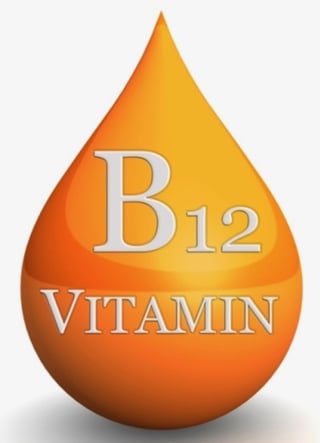 It’s estimated nearly 40% of the American population suffers from B12 levels that are too low. When B12 levels are too low, the brain doesn’t work quite right and, more often than not, people suffer from chronic fatigue.
It’s estimated nearly 40% of the American population suffers from B12 levels that are too low. When B12 levels are too low, the brain doesn’t work quite right and, more often than not, people suffer from chronic fatigue.
But B12 does more than just support healthy energy levels. Its also provides a wide range of health benefits.
The question is, are you getting enough?
What is vitamin B12 and why do I need it?
Vitamin B12 is a nutrient that helps keep the body’s nerve and blood cells healthy and helps make DNA, the genetic material in all cells.
Vitamin B12 also helps prevent anemia, a condition in which the number of red blood cells is lower than normal, causing a condition in which not enough oxygen is getting to the tissues in the body.
For those with Alzheimer's Disease, vitamin B12 may also help curb cognitive impairment.
What foods provide vitamin B12?
Vitamin B12 is found naturally in a wide variety of animal foods.
The best sources of vitamin B12 are beef liver and clams. Fish, meat, poultry, eggs, milk, and other dairy products also contain vitamin B12.
What happens if I don’t get enough B12?
B12 deficiency can cause a type of anemia marked by fewer but larger red blood cells. It can also cause walking and balance disturbances, a loss of vibration sensation, confusion, and, in rare but advanced cases, dementia.
The body requires B12 to make the protective coating surrounding the nerves, so inadequate B12 can expose nerves to damage.
Other symptoms of B12 deficiency are tiredness, weakness, constipation, loss of appetite, and weight loss. Nerve problems, such as numbness and tingling in the hands and feet, can also occur.
Studies show that a lack of B12 in middle aged females can increase loss of bone, causing fractures.
Furthermore, there is definite association of B12 deficiency in all cases of diabetes type 2.
If you suspect you have B12 deficiency, the first step is to get tested. Contact your primary care physician today.

